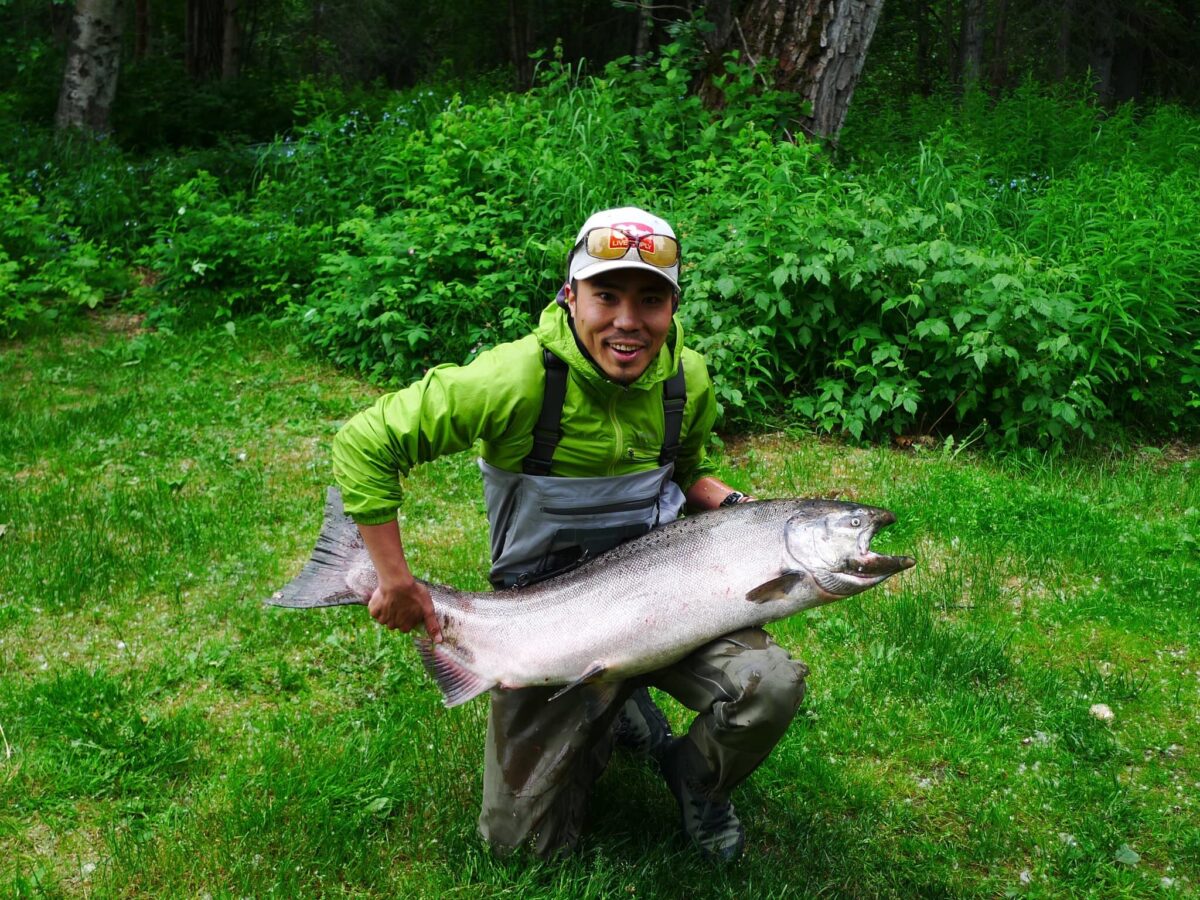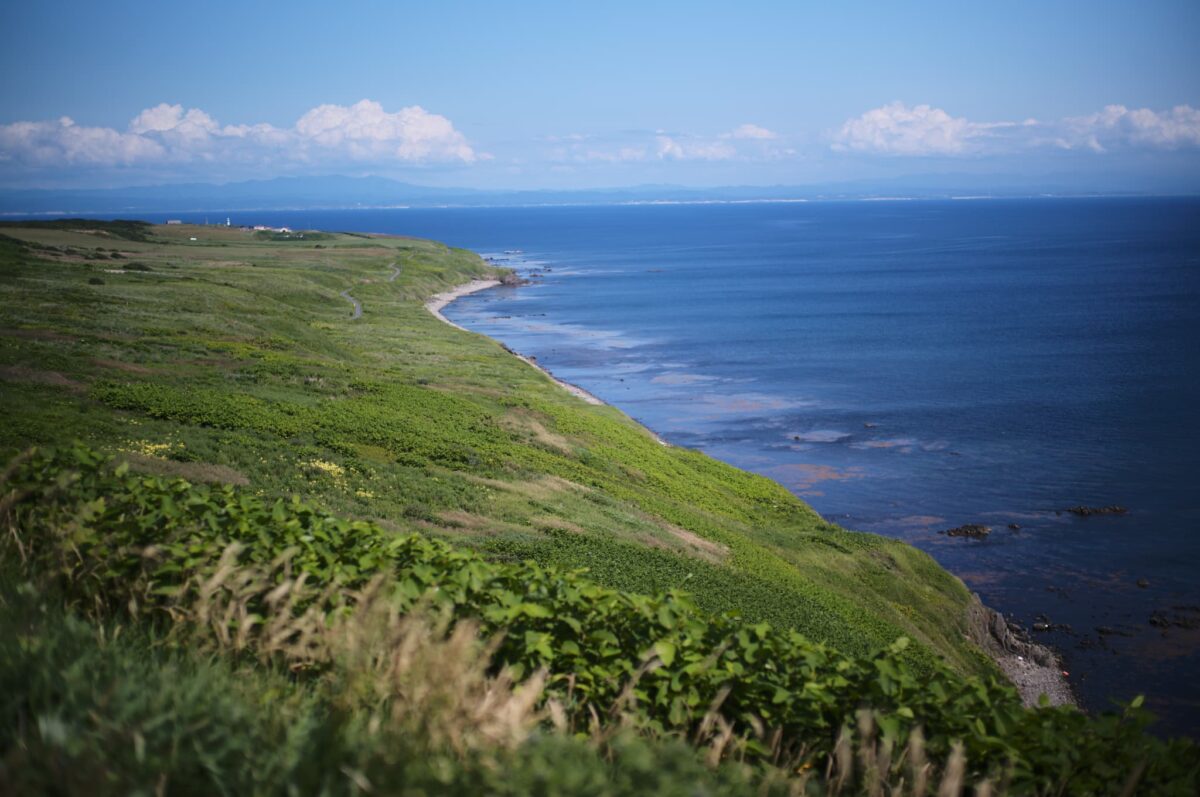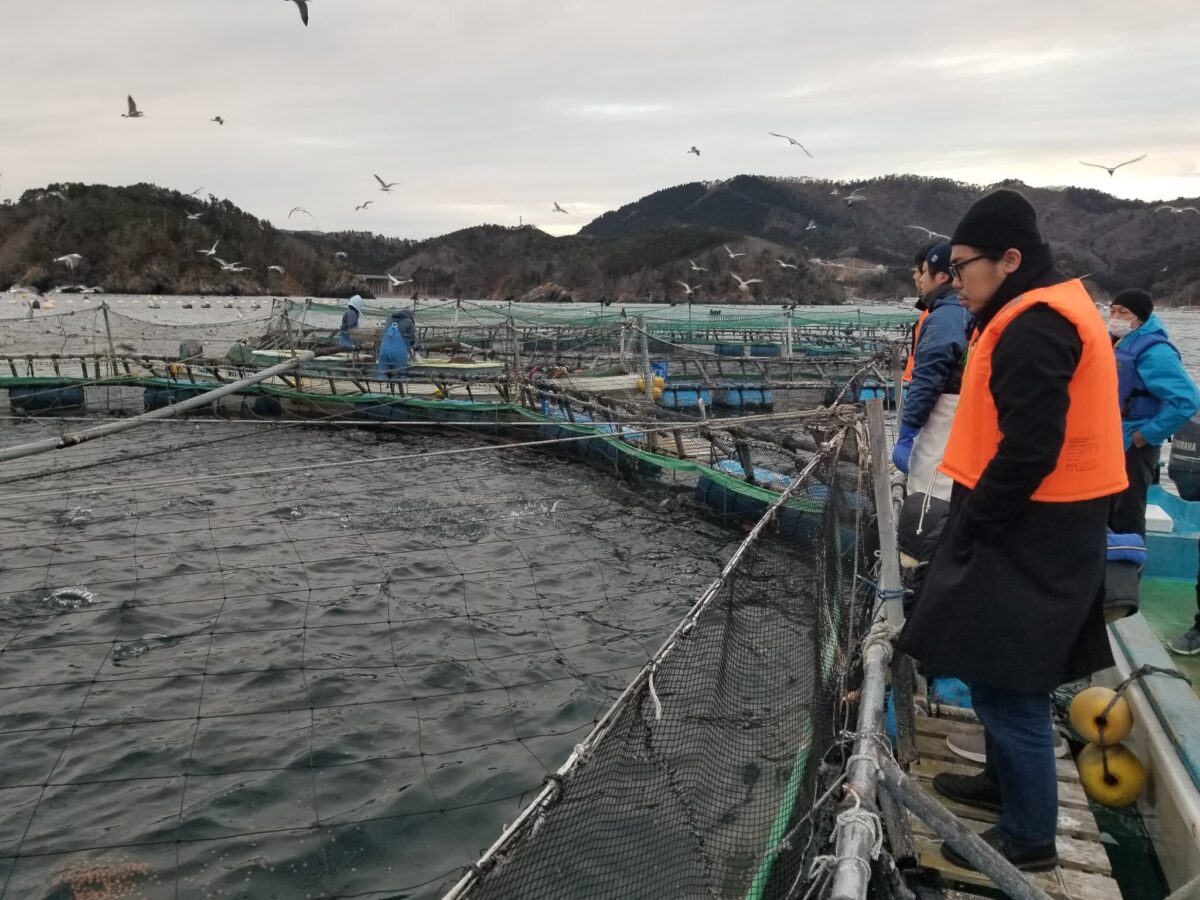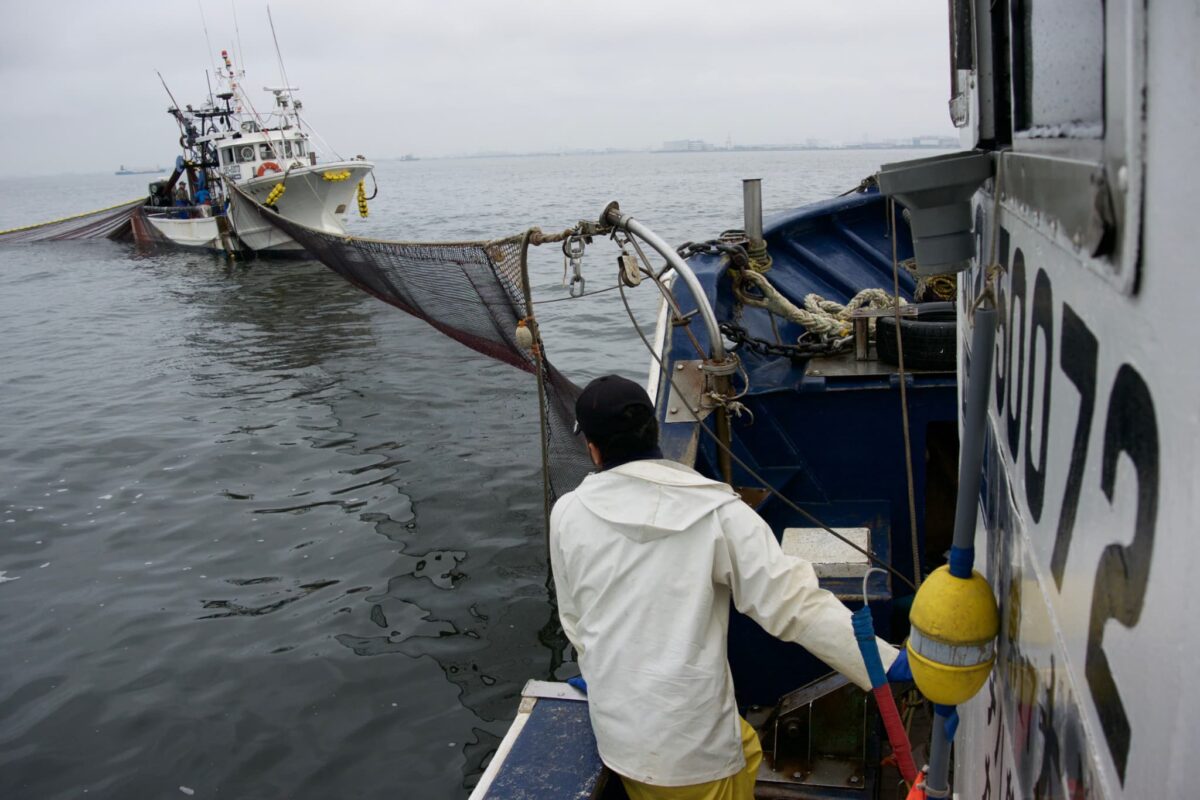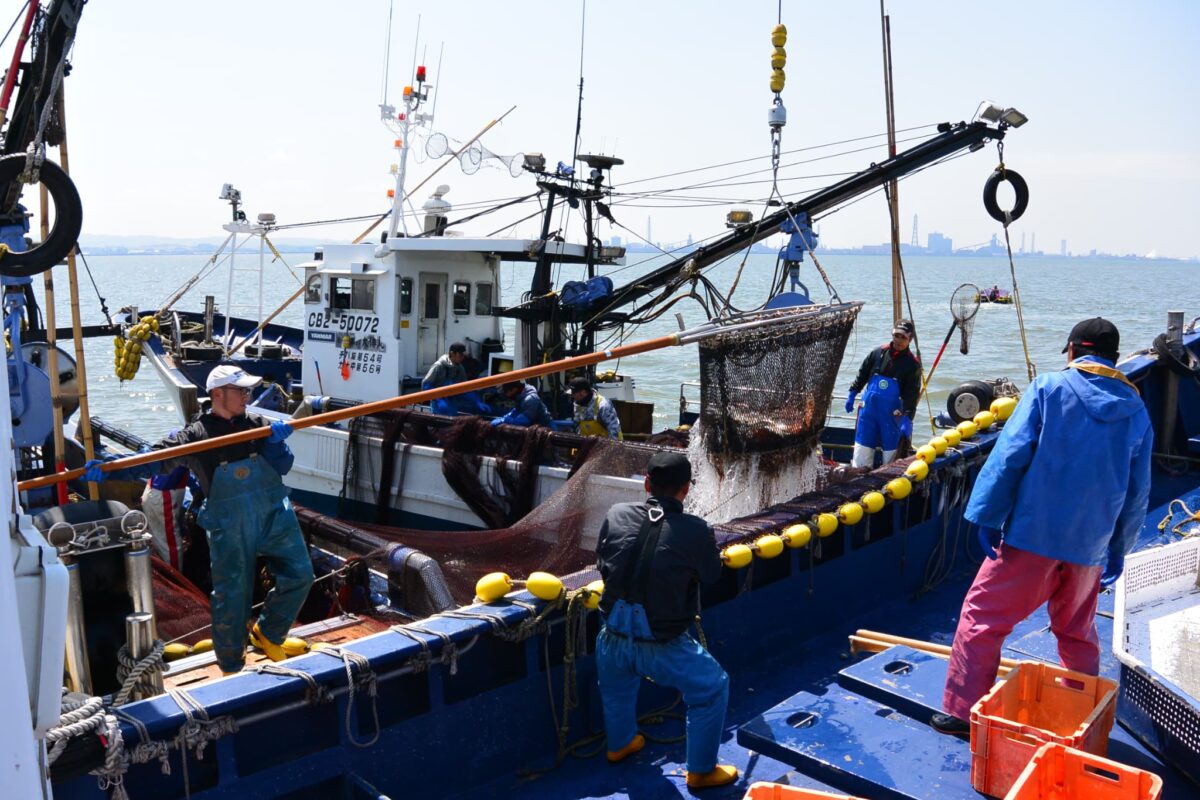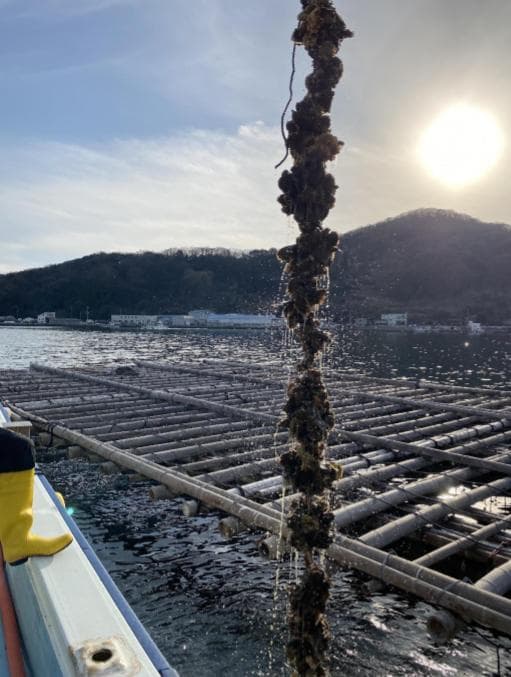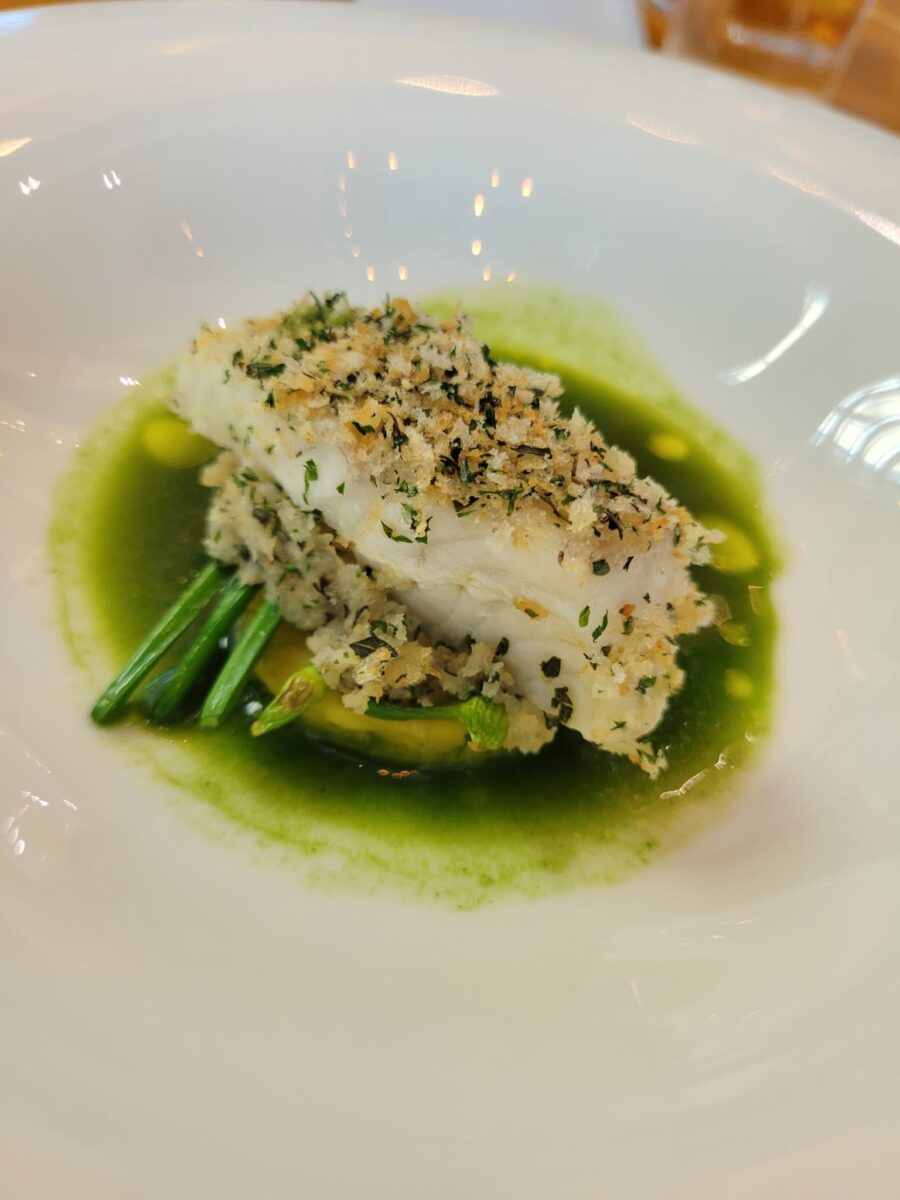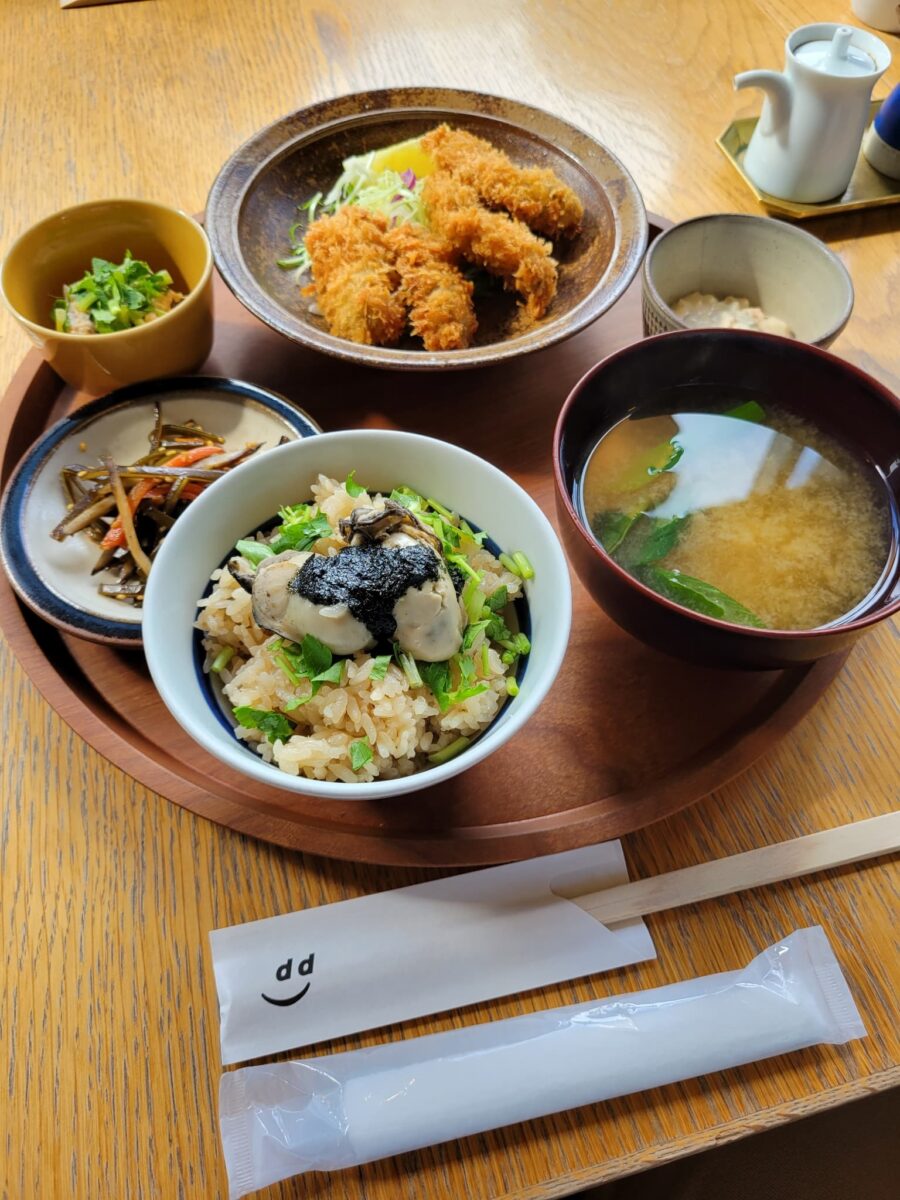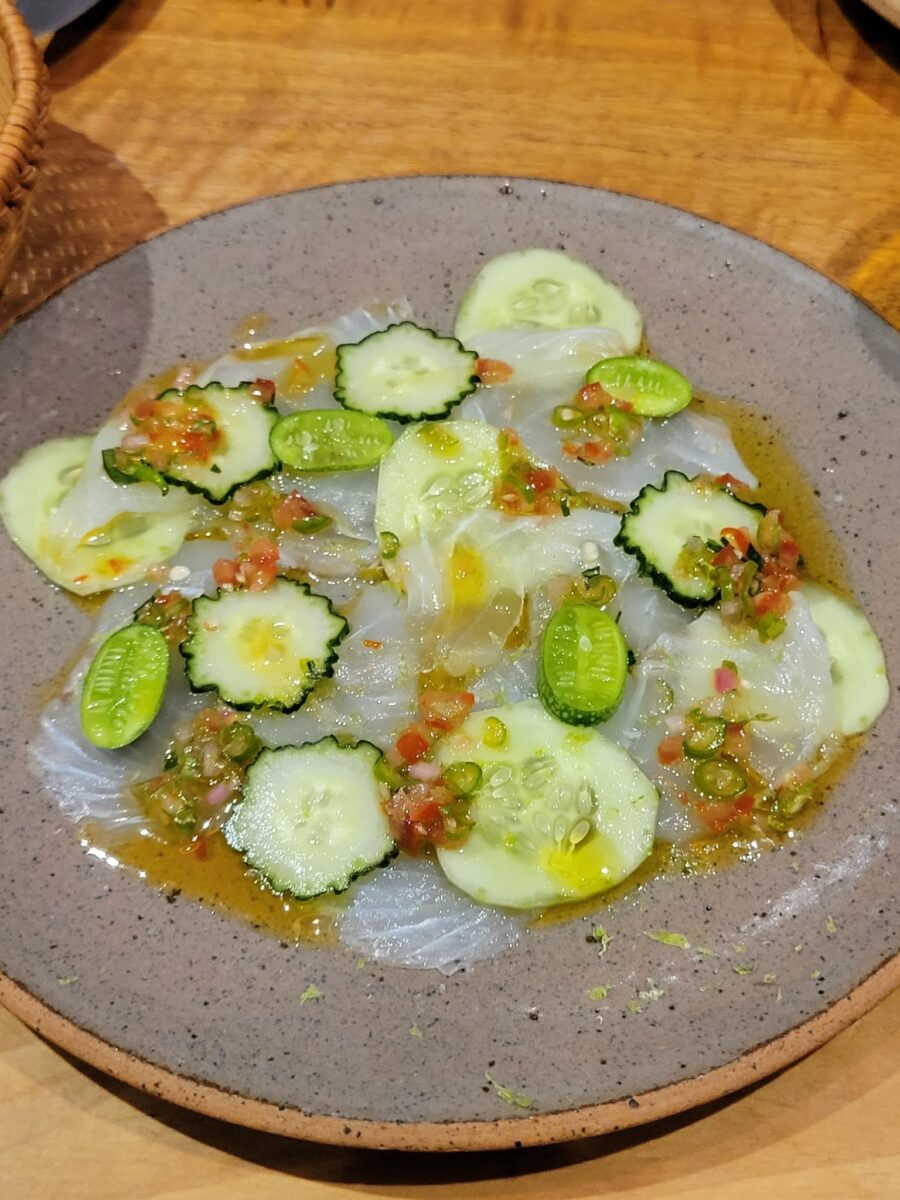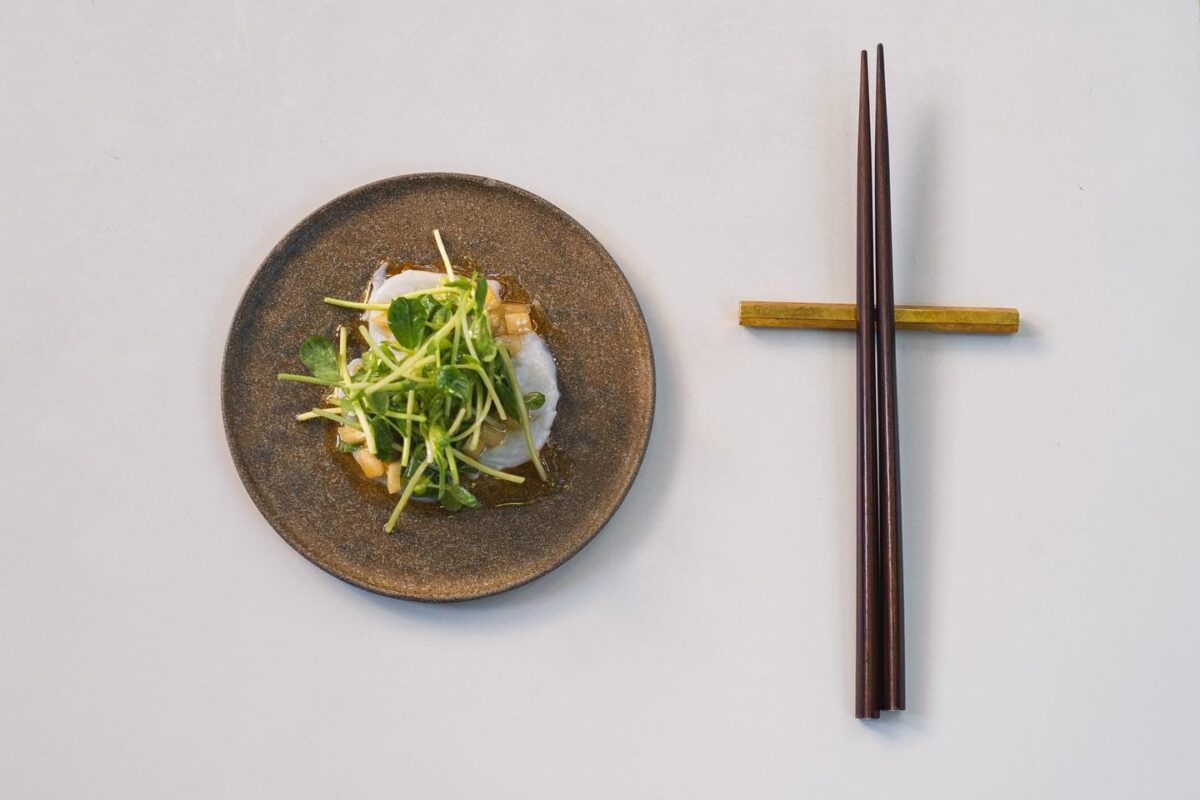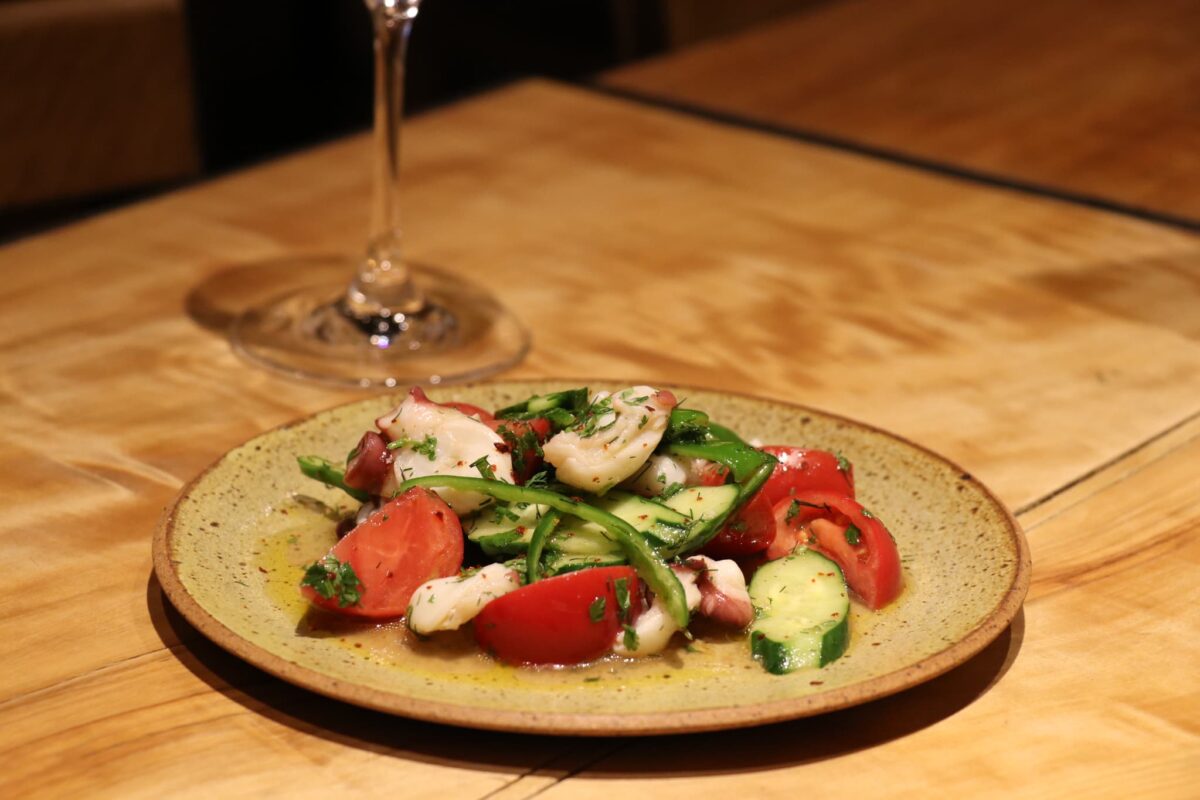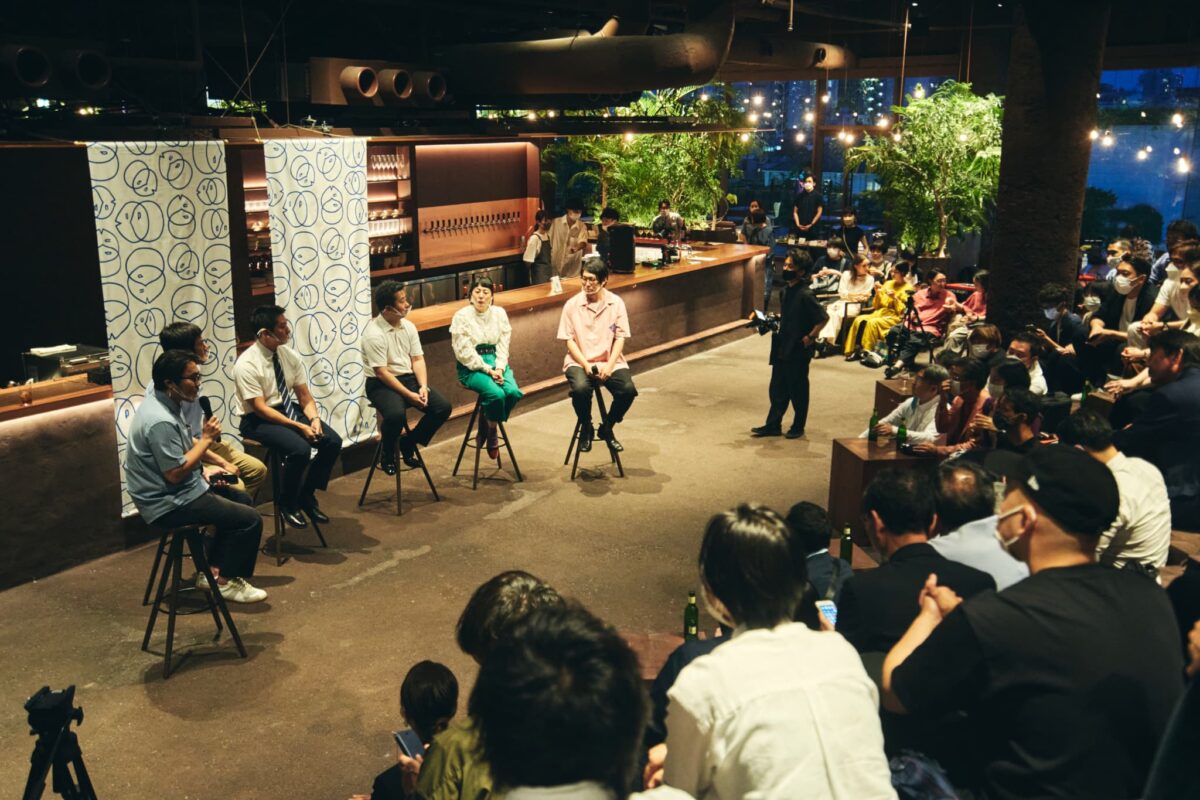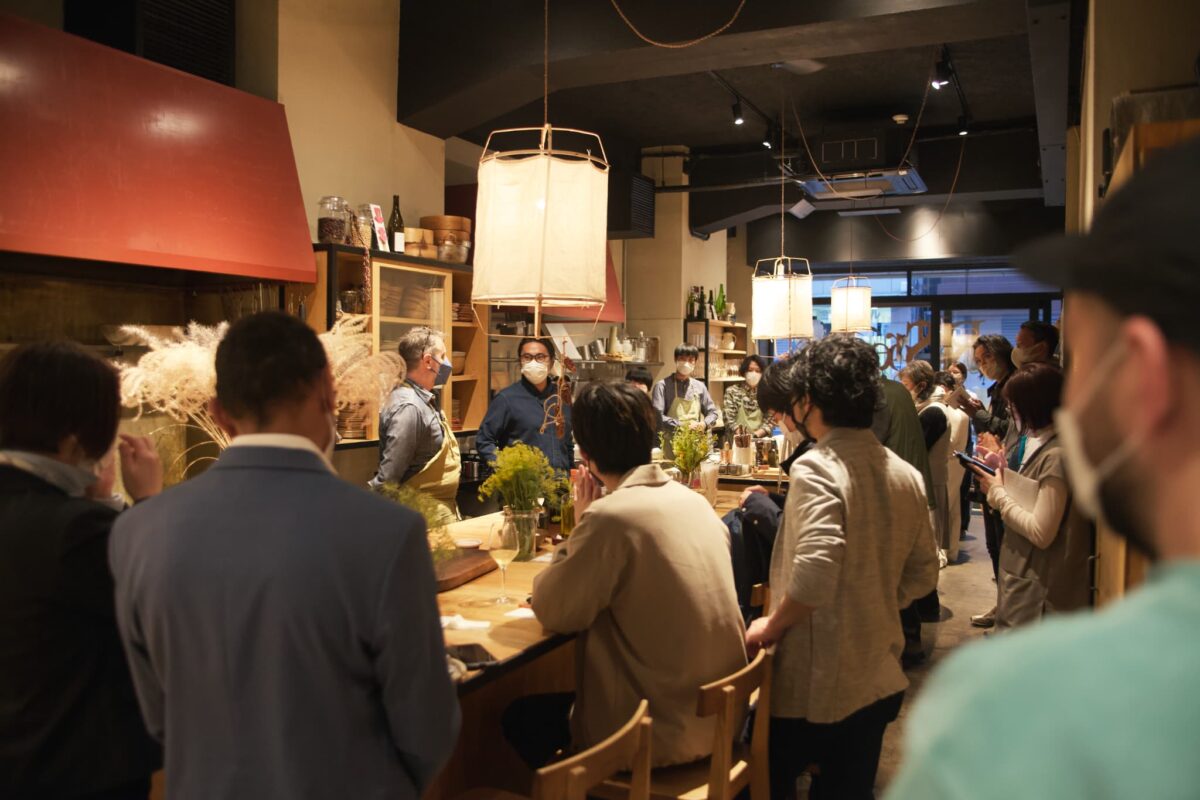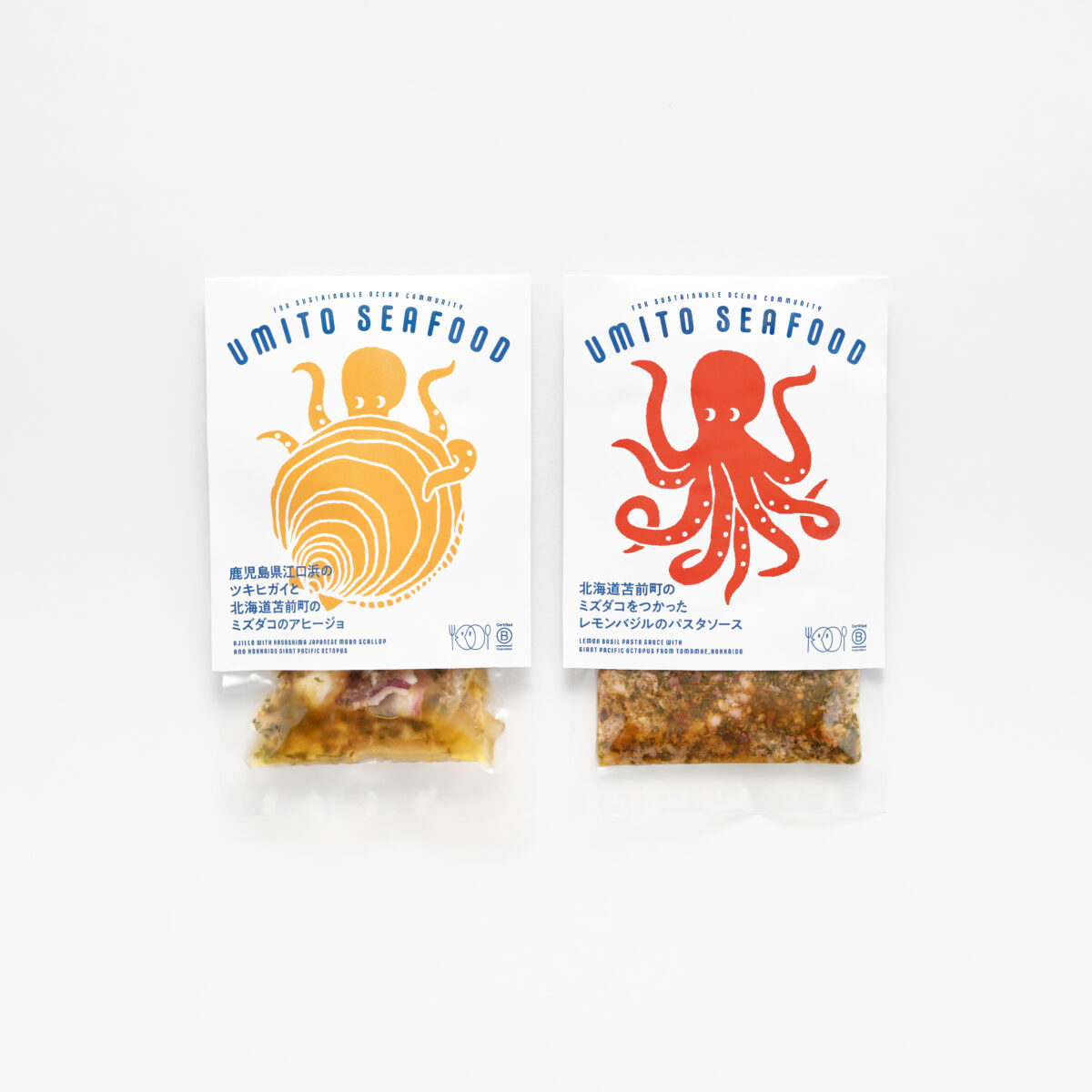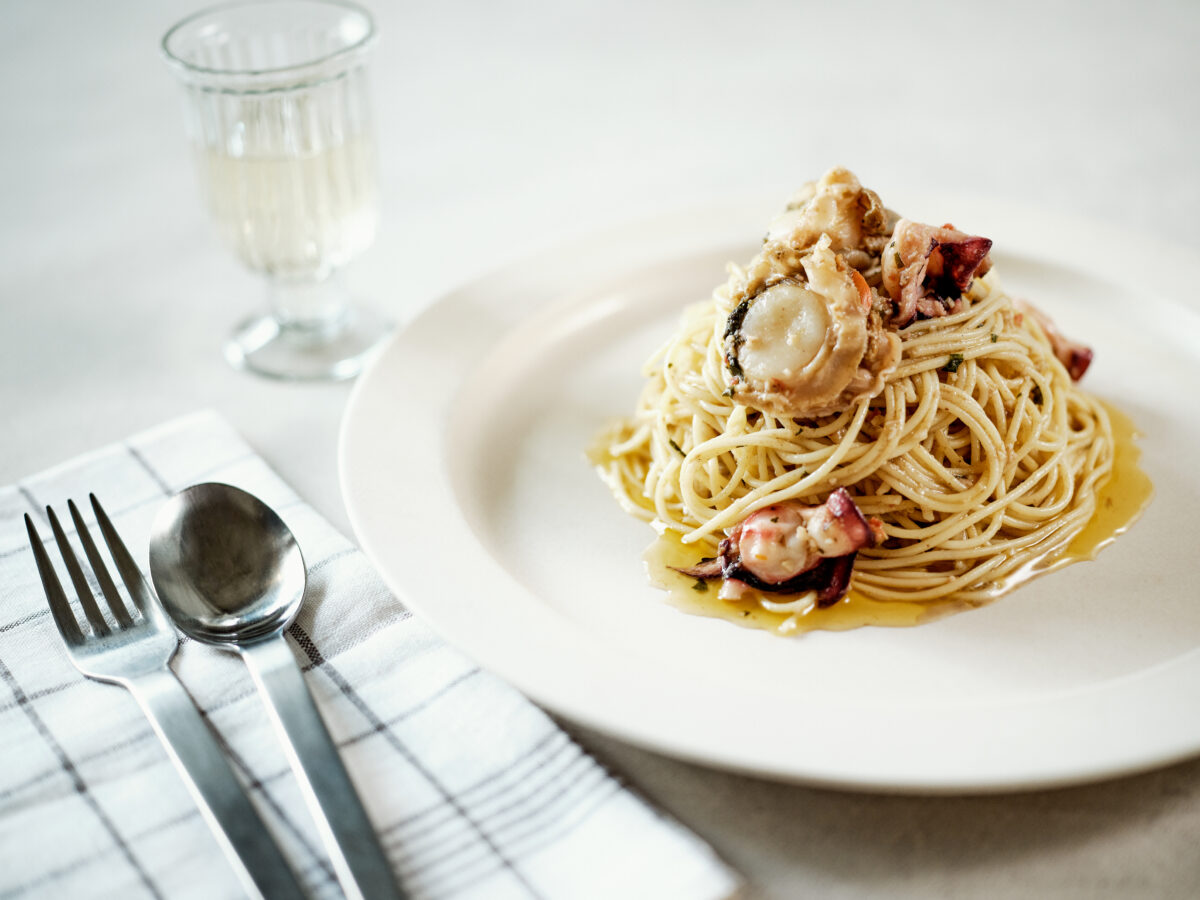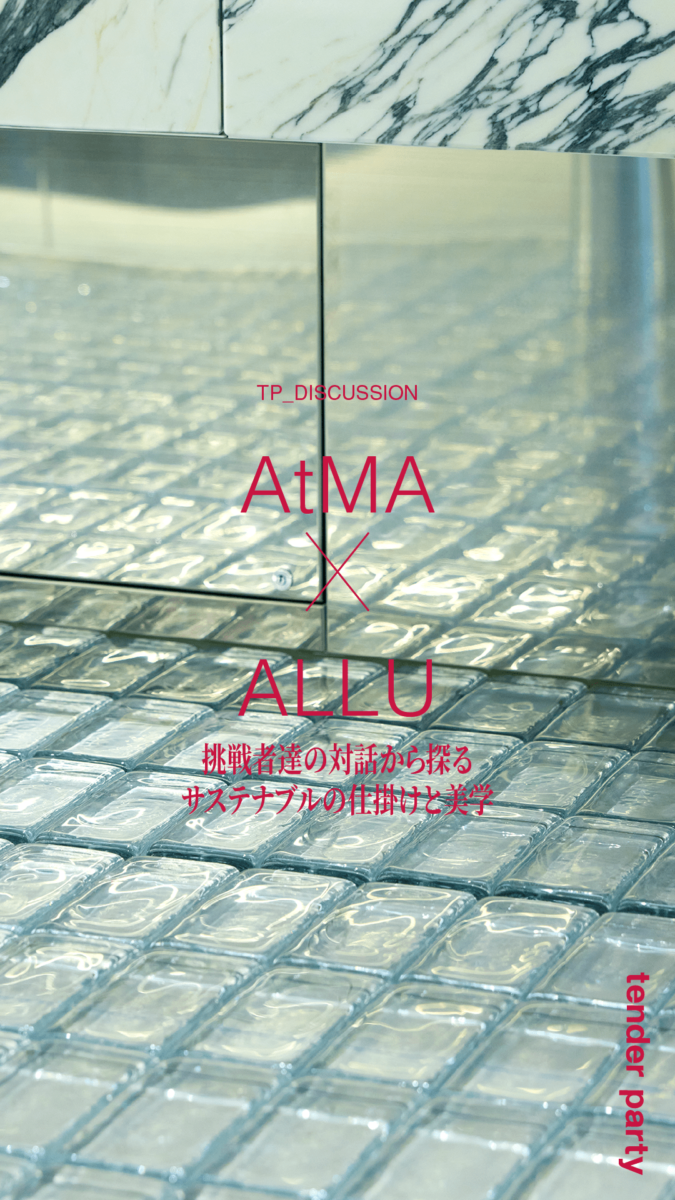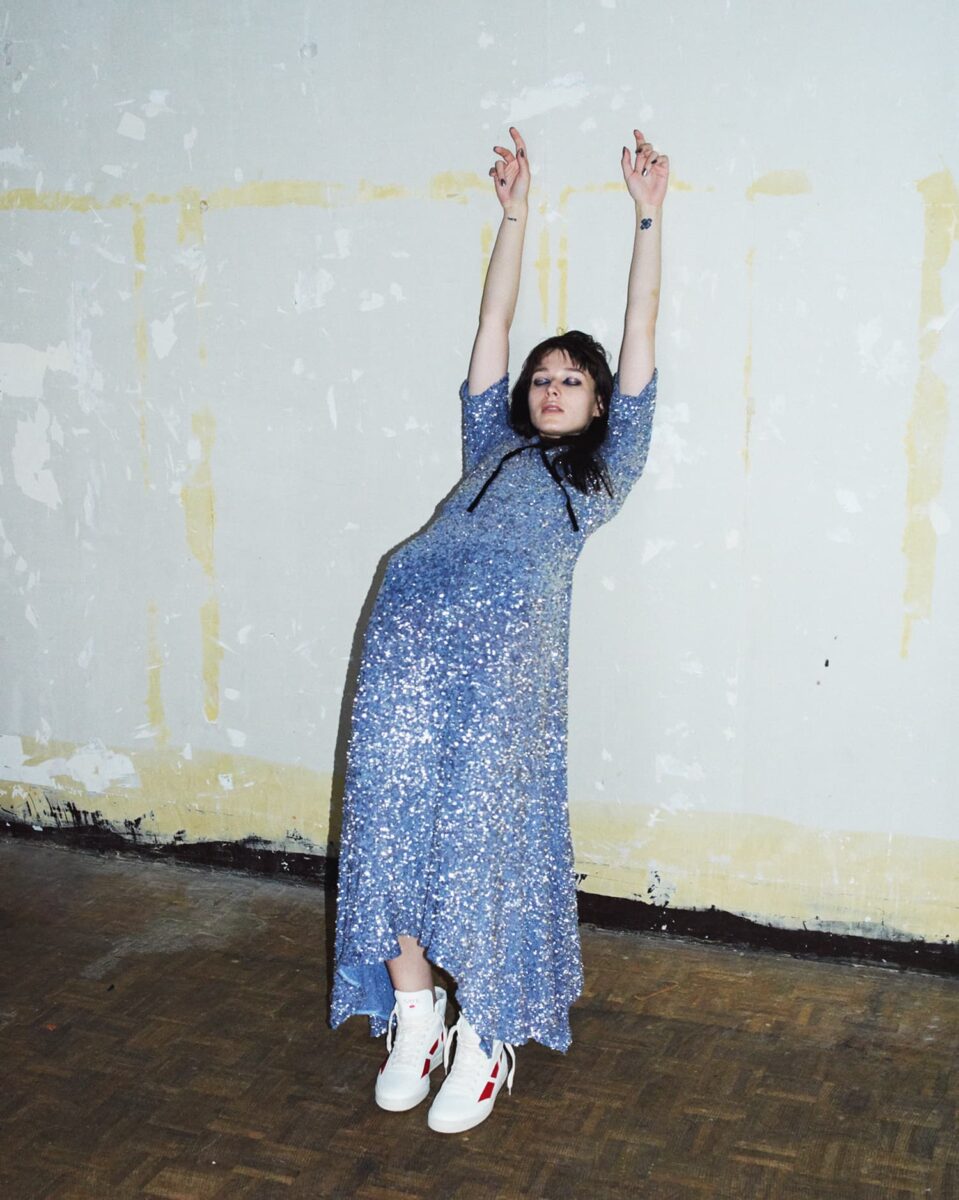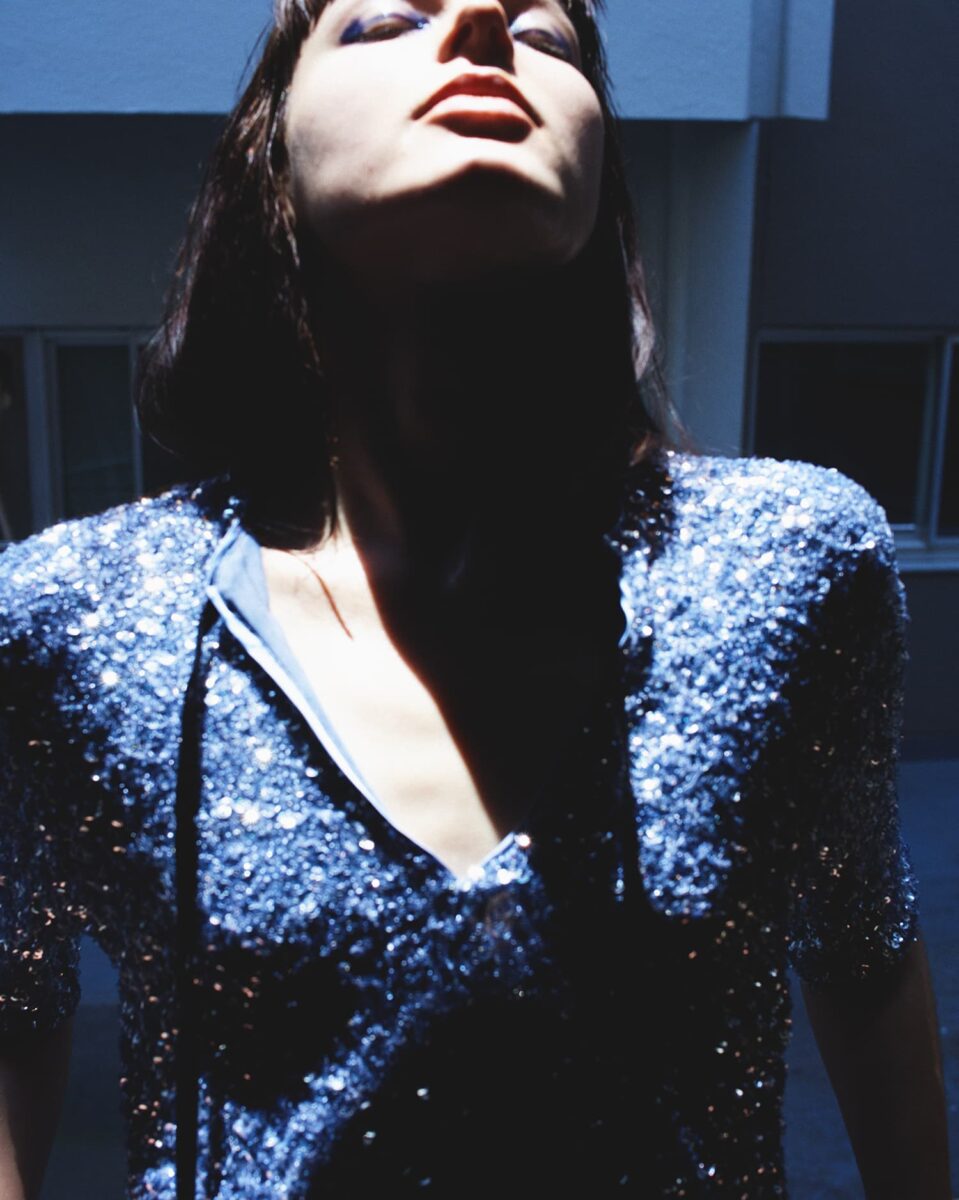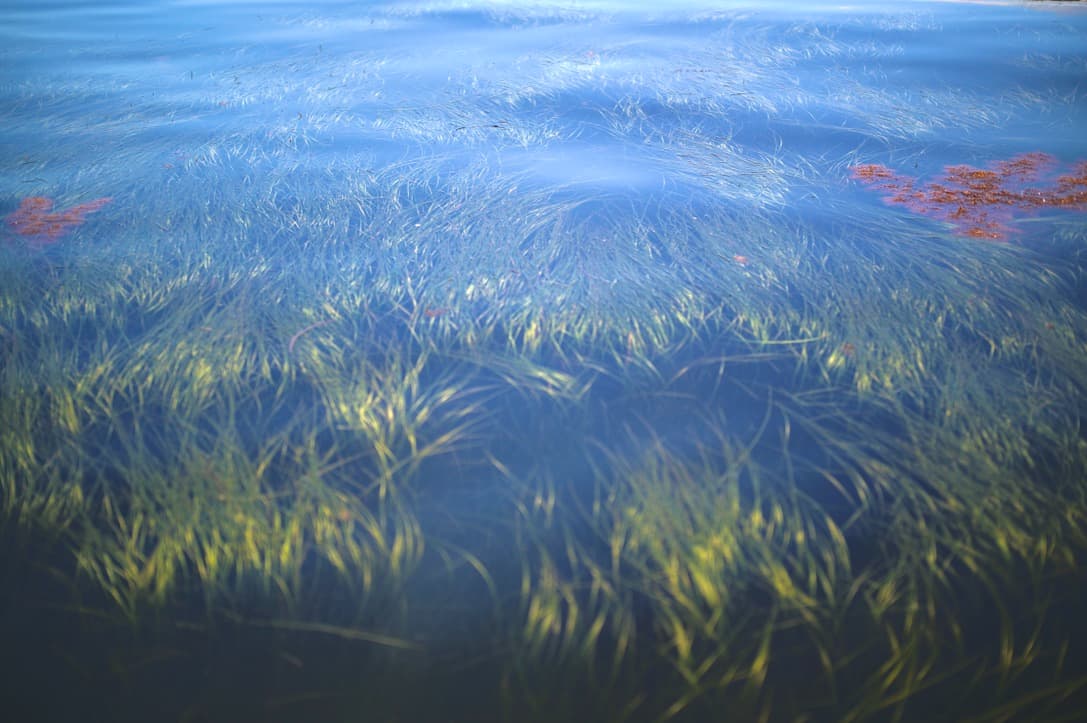
The oceans are rich with delicious fish that can be caught at any time of the year. One company, UMITO Partners, is now in its fourth year of working hard to restore the ocean to a healthy state that has changed over the years. The company is encouraging a shift to data-driven sustainable fishing throughout Japan while addressing ocean issues through people working in the sea. Back in town, UMITO Partners serves as an important bridge to connect the delicious and safe bounty to Tokyo’s finest restaurants. What is the “positive relationship between oceans and people” that can be achieved by the representative of the company, Mr. Shunji Murakami, who has spent eight years facing the great outdoors by hitchhiking and backpacking while traveling in Europe and the U.S.?
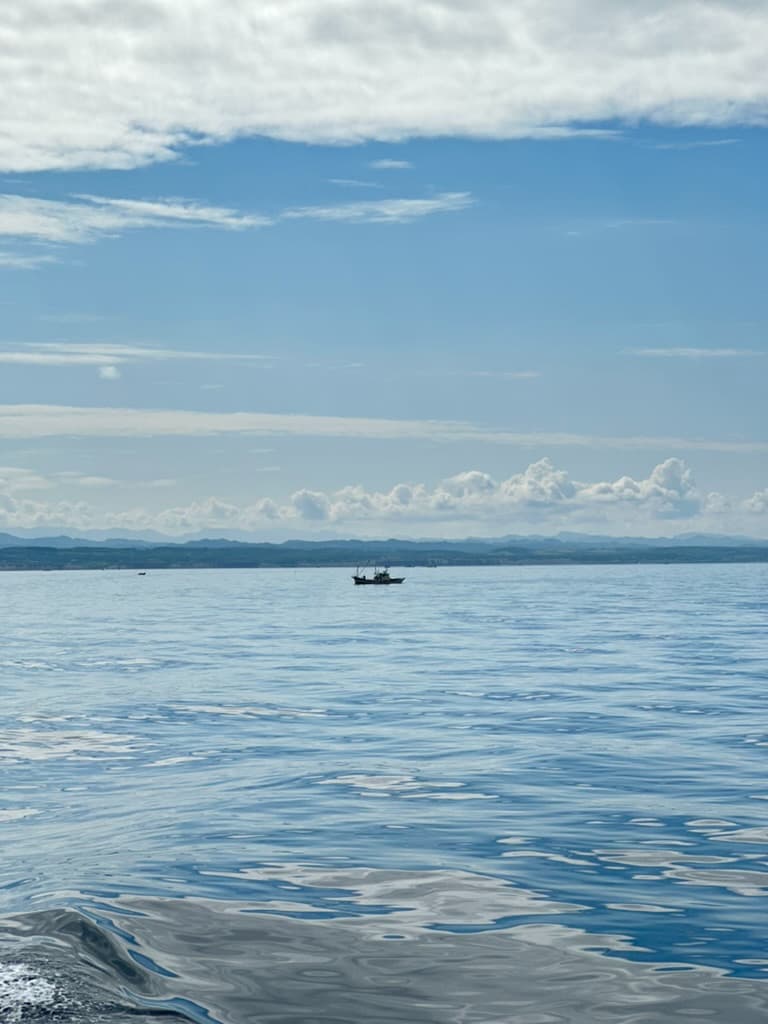
What comes to mind when you are asked, “What are the problems in the oceans?”
The video of creatures starving to death with discarded nets and other ghost gear wrapped around their necks and their bellies distended with garbage in the ocean of floating plastic trash is shocking, but that is not the only thing that is out there.
Japan is surrounded by rich oceans, but Japan’s fish catch has declined by less than one-third in 40 years. The causes are many- rising sea surface temperatures due to climate change are drastically altering the migration routes of fish around the world, sparking the next natural disaster one after another.
As a result of the complex interlocking effects of coastal development and feeding damage by sea urchins and sea eels, the environment in which fish can grow, including seaweed beds, has plummeted by about 70% over the past decade, and the ecosystem is collapsing. Japan’s EEZ (Exclusive Economic Zone) is also one of the biodiversity hotspots where about 14% of the world’s marine life lives, but the biodiversity of land, river, and sea has decreased by 68% in the past 50 years. Furthermore, illegal fishing, including poaching, is still prevalent in the world’s oceans, and in 2015, it was once estimated that 24-36% of the 2.15 million tons of natural marine products imported were IUU (illegal, unreported, and unregulated) fishing. Laws to protect safe fishing, including regulations, are outdated and data to take action are scarce. Somewhere along the way, lifestyles have shifted away from the local indigenous climate, and respect for nature has faded from people’s consciousness, resulting in a large gap between the sea and the city. The fishing industry, which is aging without a successor, is in a state of decline.
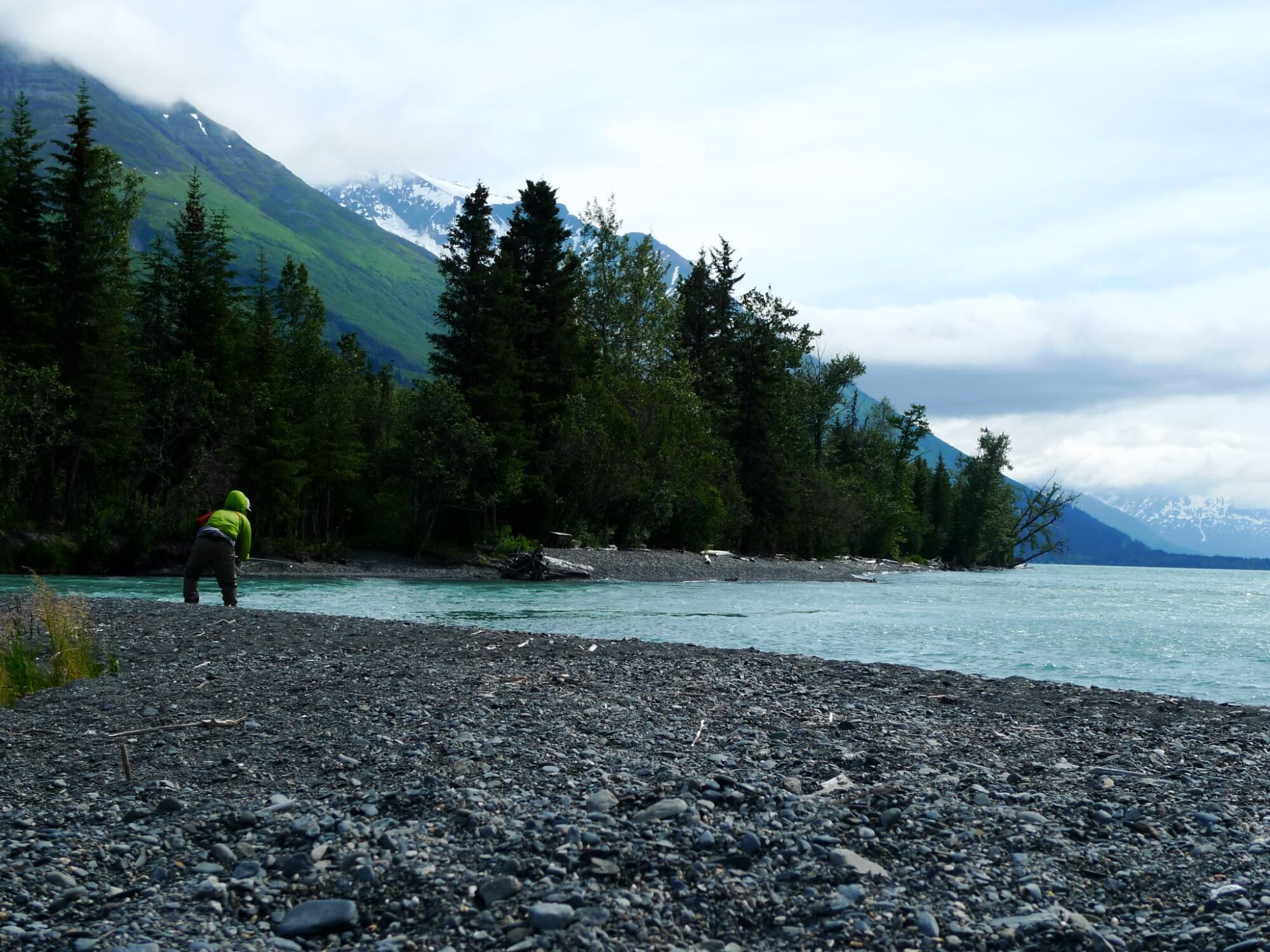
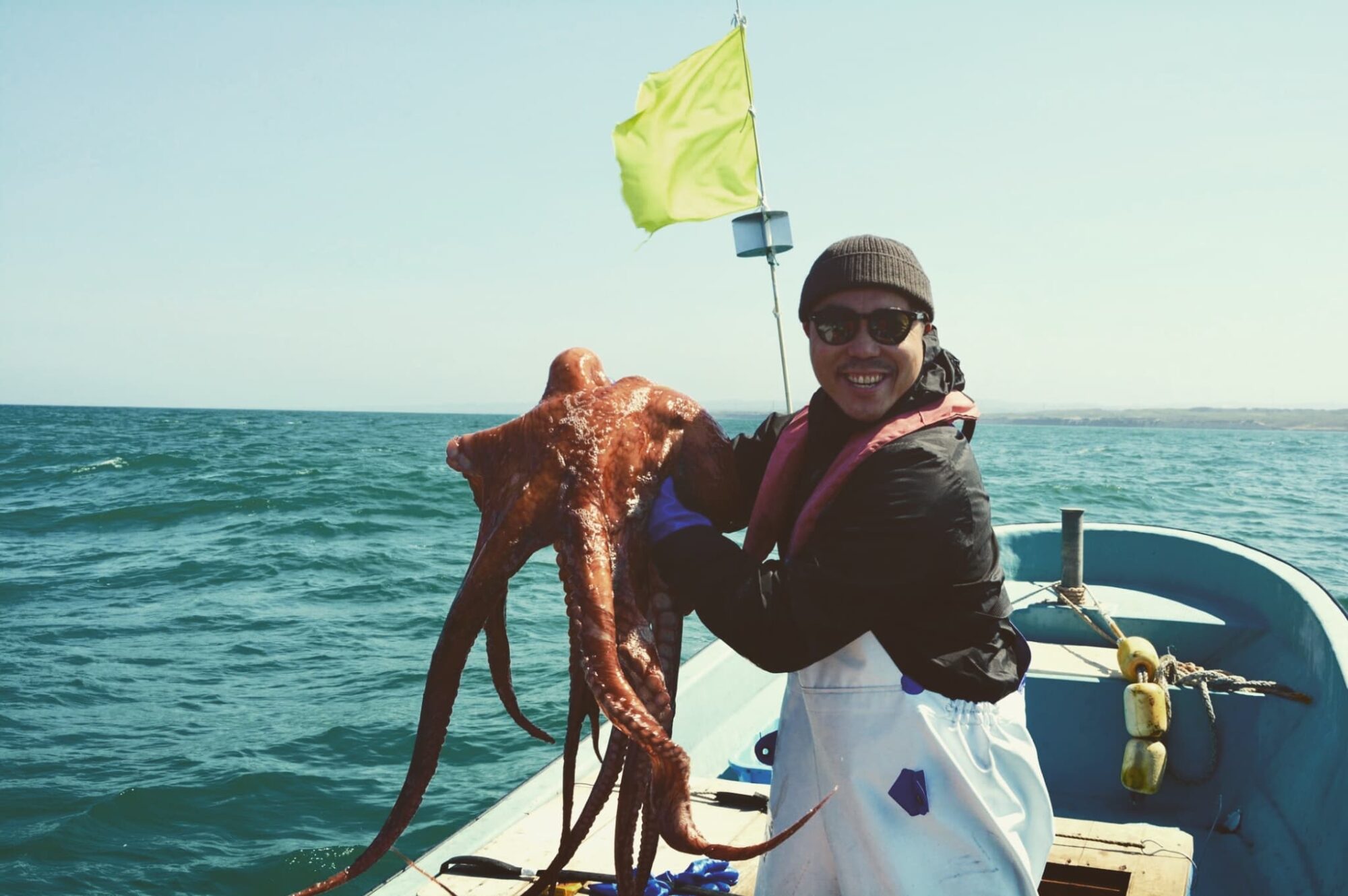
UMITO Partners promotes sustainable fishing
UMITO Partners is engaged in a variety of related businesses to promote the shift to sustainable fishing and aquaculture, including data analysis in collaboration with universities and government research organizations, support for obtaining MSC certification, and wholesale supplier procurement support.
A sustainable fishery is one in which the amount of fish produced is maintained at a higher level than the amount of fish caught and the impact on the ecosystem is minimized. To achieve this, fishery management is devised to improve ocean conditions and create the best growing environment for fish and shellfish, leading to the harvesting of seafood in good condition. Delicious seafood grown in sustainable fisheries flourishes in a gastronomy that sincerely respects sustainable practices and nature’s bounty. Not only do the fishermen’s lives become richer as their wholesale markets expand, but their mission to protect the ocean and their desire to contribute raise the quality of each fisherman’s life to the next level.
Currently, more than 30 restaurants and hotels, including some of the most famous restaurants and hotels in Tokyo, carry UMITO SEAFOOD.
Furthermore, UMITO Partners has been working to revise the Fisheries Law to bring the voices of the frontline to the political arena, and in 2023, UMITO Partners was awarded a B Corp for its efforts to improve the environment through its business.
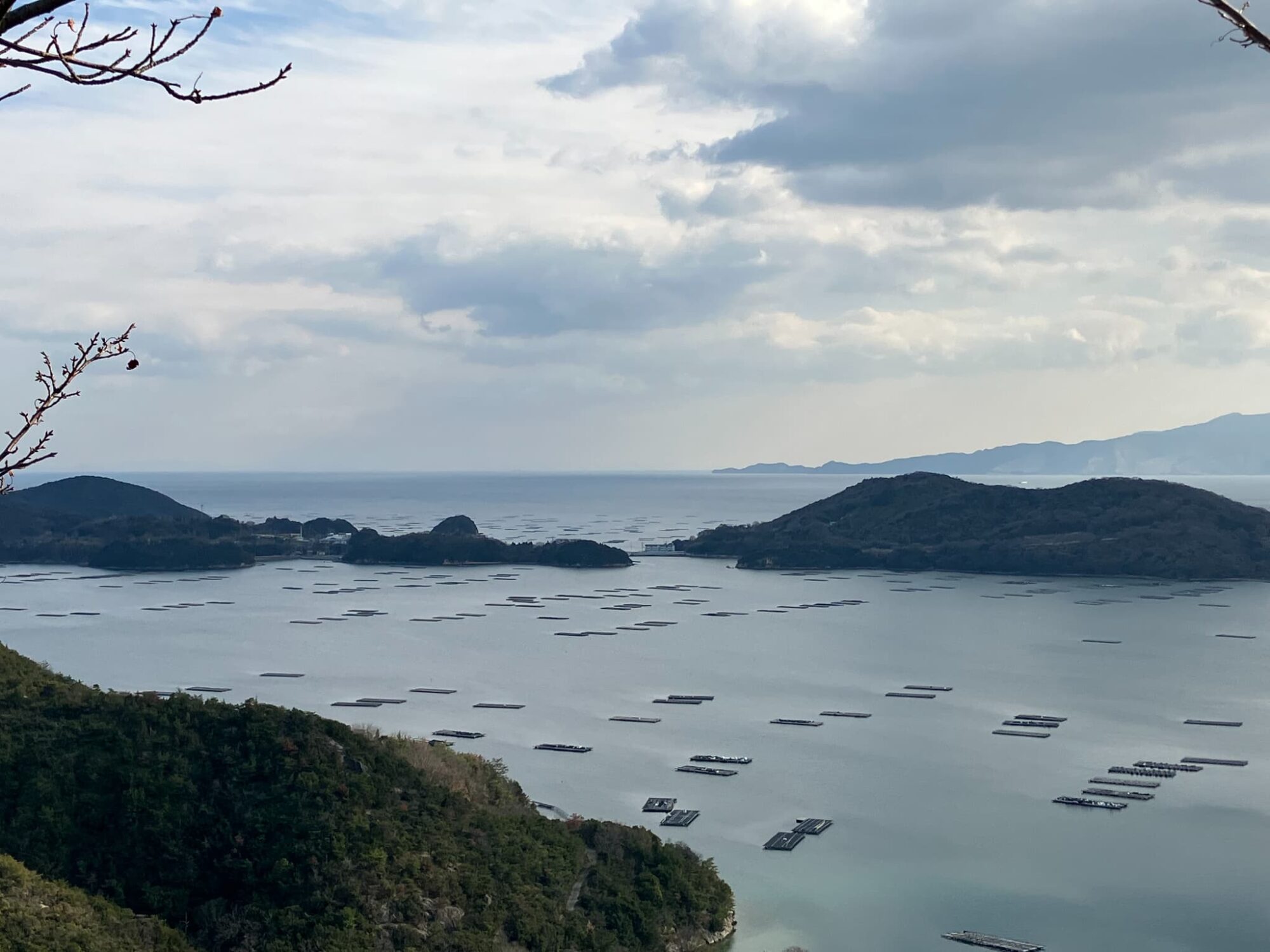
The most important element in creating a better ocean is the fishermen. The mission is to increase their value.
The difficulty in encouraging a shift to sustainable fishing is that different fishing grounds have different systems and cultures.
Different lands have different values and customs. In addition to the fact that sustainable fishing itself is not well known, it is a high hurdle to propose a change in daily practices to fishermen who have only been fishing for a decade or so, with an eye to the next 10 years or so. “How can we think about 10 years from now when we don’t even know if we will be able to feed ourselves tomorrow?” Murakami takes the time to meet each fisherman one by one.
Once they hit it off, they go knee-to-knee and drink together, and over the course of months and years, he gains their trust.
Like the sun in “The North Wind and the Sun,” he keeps shining his light on their feet until one day each fisherman understands the beauty of sustainable fishing and decides for themselves that it is what they really want to do. “Those who have the initiative will continue to do it even after we are gone. That is the ideal. If you start because of money, you can quit because of that. From a long-term perspective, a transient catalyst is not good enough.”
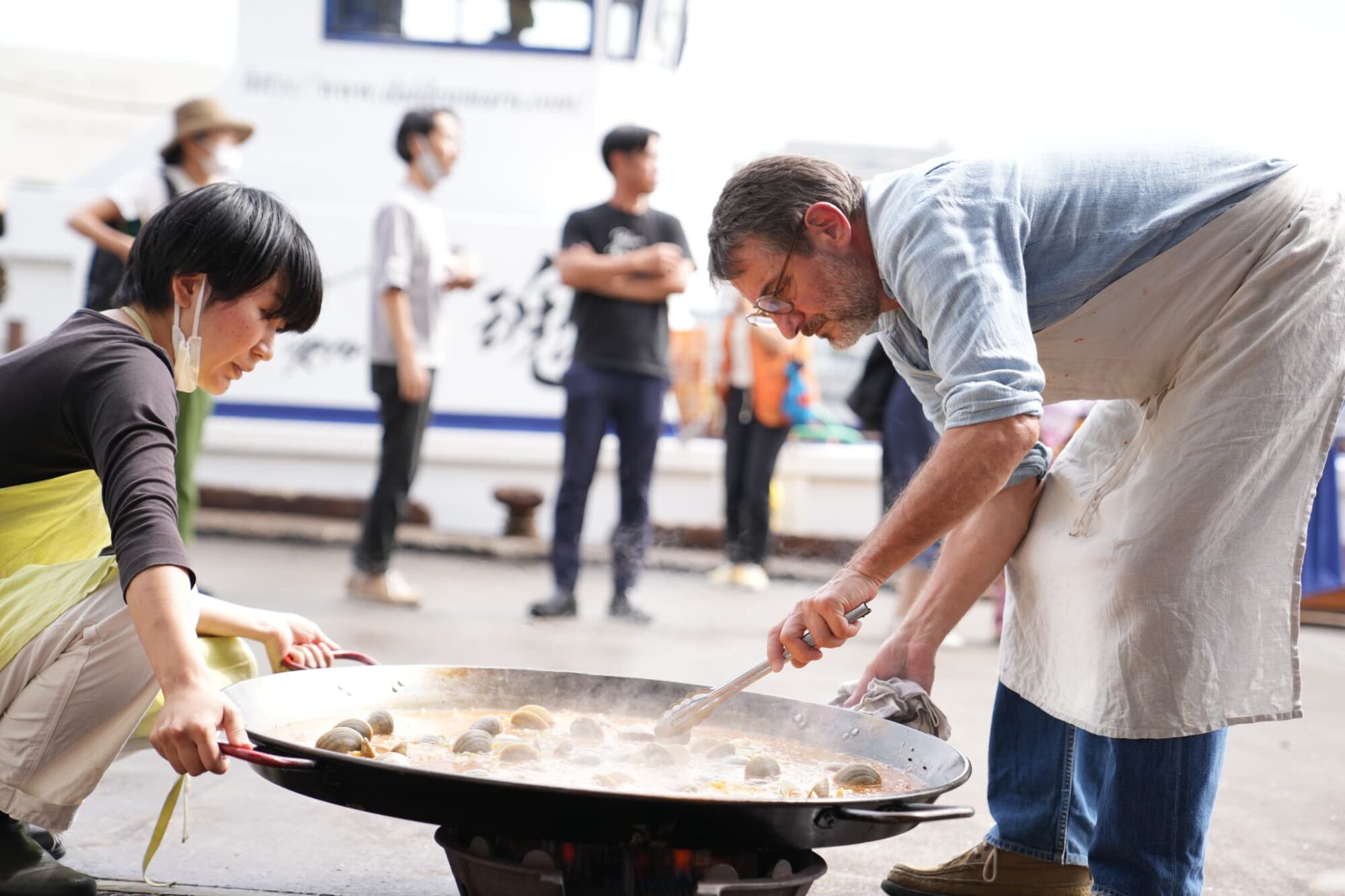
Money can make the world either better or madder
UMITO Partners is a company that aims to “create a positive relationship between people and the sea.” The system that Murakami has designed for UMITO Partners, which faces the issues of people and local communities, is so humanistic that it can only be moved forward one step by immersing oneself in a primitive and humanistic world.
The sweltering clashes between human beings, which can be described as an exchange of souls, are a natural manner in the tense atmosphere peculiar to the site of those in charge of life. At the same time, it reminds us that this is what it means to receive life from nature.
He told us about one of the turning points in his life, when he visited Lake Titicaca in Peru. He said, “I did a home stay with people who live a universal lifestyle on reed grass, unchanged for thousands of years. I went there to experience the unchanging history, but I was shocked to realize that I was just a tourist there. When we parted, they told me to bring back another tourist. They used to live thoroughly self-sufficient lives, like making soap from their own urine. The first time they entered the monetary economy was when one visiting German gave them candy and soap as a souvenir. One person’s good intentions changed the gears of thousands of years of history and broke tradition in an instant. Of course, they may be happy with that, and it is my selfish ego that wants them to stay the same. However, money has the power to make the world a better or worse place depending on how we use it and how we earn it. So I want to use it for good, and I want to emphasize what I want to do through my business.”
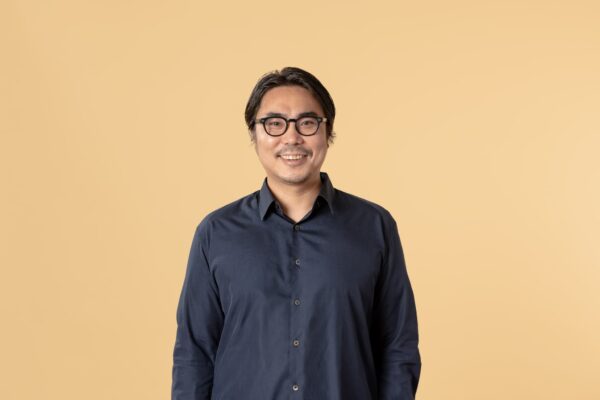
profile
UMITO Partners President Shunji Murakami
Born in Fukuoka, Japan. He studied natural geography and business ahead of his time at San Francisco State University, and after returning to Japan, he worked for Patagonia in their Japan office while working as a freelance writer. Then worked as the Japan coordinator for the NGO Wild Salmon Center, and in 2015 became a founding member of the international environmental NGO Ocean Outcomes as the Japan Chapter Director. 2018 “merged with Seafood Legacy Inc.” as Executive Vice President/COO. In 2021, he founded UMITO Partnes Inc. He is a member of the Asia Pasific FIP Community of Practice Council and a member of the Aquaculture Industry Growth and Industrialization Promotion Council.
WEBSITE
